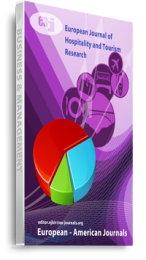Development agencies and policymakers are increasingly advocating tourism revenue sharing as an effective way to increasing local development around protected areas. In Rwanda, through its outreach programme, the Tourism Revenue-Sharing (TRS) programs, Rwanda Development Board (RDB) usually remits 5 per cent of the park entry fees every year to fund various community projects where given tourist attraction is found. The study was guided by the following key objectives; to examine the social economic impact of tourism revenue sharing program towards the development on local communities, and analyse the challenges faced by local administration and beneficiaries in management of these revenue sharing. To archive the set objectives, a cross sectional research design was used, combined with qualitative and quantitative approach. Primary data was collected from community members living adjacent to Nyungwe national park, community leaders and RDB staff through questionnaires and interviews. The study adopted descriptive and statistical approaches in processing data and Special Program for Social Scientist (SPSS) computer program was employed in data analysis. The survey findings indicated that the revenue sharing program had contributed to social-economic development as it had facilitated the construction of 6 health centers and 10 schools, ensured communities access to safe water supplies and improved housing condition. Several agricultural projects were supported directly through the revenue sharing scheme; it had created employment, promoted local enterprises and sustainable use of natural resources in Nyungwe national park. However, the study revealed some challenges in management of revenue sharing and among those were; inadequate funds, corruption, inadequate skilled manpower, poor communication and elite capture
Keywords: Local Community, Revenue Sharing, Tourism

